Musicians Win New Audiences by Moving Online
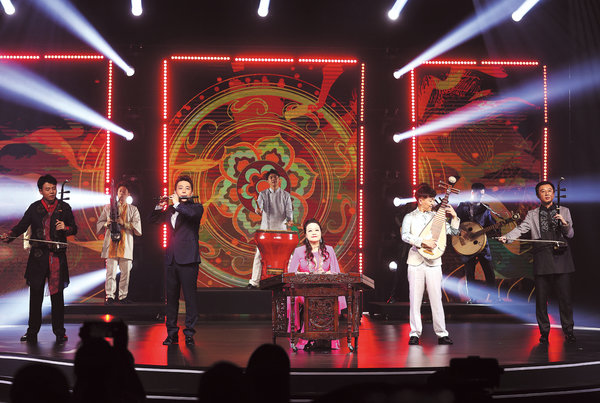 |
| Yangqin player Shen Xiangyang performs with young musicians from the China National Traditional Orchestra during an online concert on Aug 24. [China Daily] |
Livestreaming Offers New Challenges and the Chance to Earn Extra Income
When it comes to traditional Chinese music, images of seniors sedately playing the pipa (a four-stringed lute) and the guqin (a seven-stringed instrument) usually spring to audiences' minds.
Yet traditional Chinese musicians are now presenting their work and engaging with audiences in a thought-provoking and exciting way.
Footage on numerous livestreaming platforms shows musicians staging creative online performances in a setting that is totally different from the concert hall, their traditional stage.
On Aug 24, the China National Traditional Orchestra said it was teaming up with the Douyin short video platform to stage online shows featuring the ensemble's musicians playing 87 traditional instruments.
Zhao Cong, the orchestra's principal pipa player and also its president, said, "It's new territory for traditional Chinese music, which really fuels inspiration."
Every Tuesday, the orchestra's musicians perform livestreaming shows for charity, and on other days, they stage such performances as soloists or as ensembles.
"Our main aim is still to perform concerts for physical audiences, but livestreaming shows are our 'second stage', as they are open to unlimited audience numbers," Zhao said.
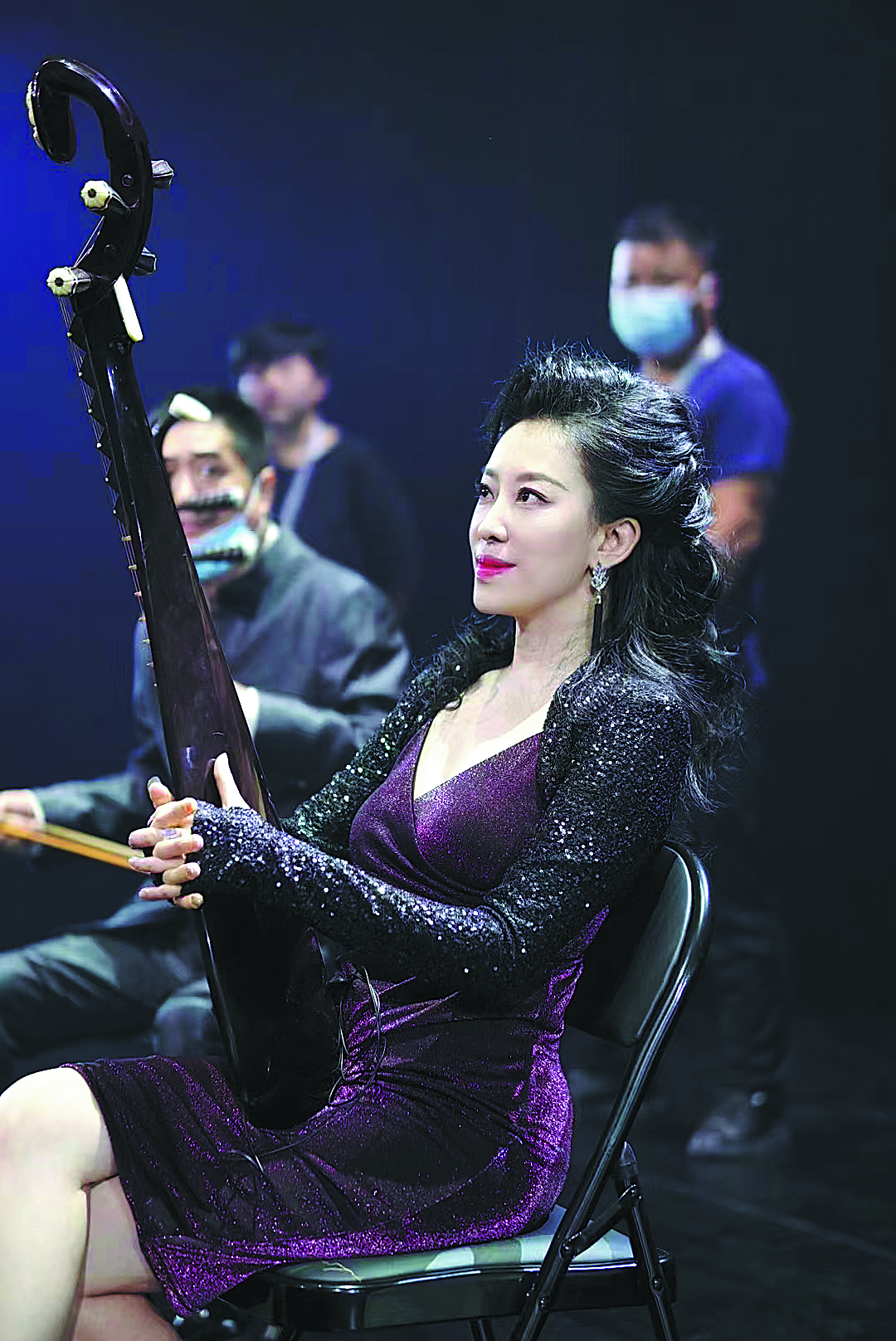 |
| Zhao Cong appears in a concert. [China Daily] |
These shows have given the orchestra, which was founded in 1960, a fresh vibe. In recent years, it has attracted widespread attention and gained a large fan base due to the rising popularity of traditional Chinese music with young audiences.
For example, during Lantern Festival this year, the orchestra staged an online concert that has been viewed more than 24 million times, while on July 18, it gave a concert in cyberspace, which was viewed over 130 million times within a month.
Since the emergence of COVID-19 in early 2020, the orchestra's musicians have volunteered to give livestreaming programs that have been viewed more than 7 million times.
Zhao said: "Traditional Chinese music can be pioneering and creative, even though the instruments date back hundreds, or even thousands, of years. We always want to introduce these great instruments and Chinese music to audiences, especially the younger generation."
She added that many reviews of the orchestra's livestreaming shows have been really positive, making the musicians aware that "there's a much bigger audience out there online".
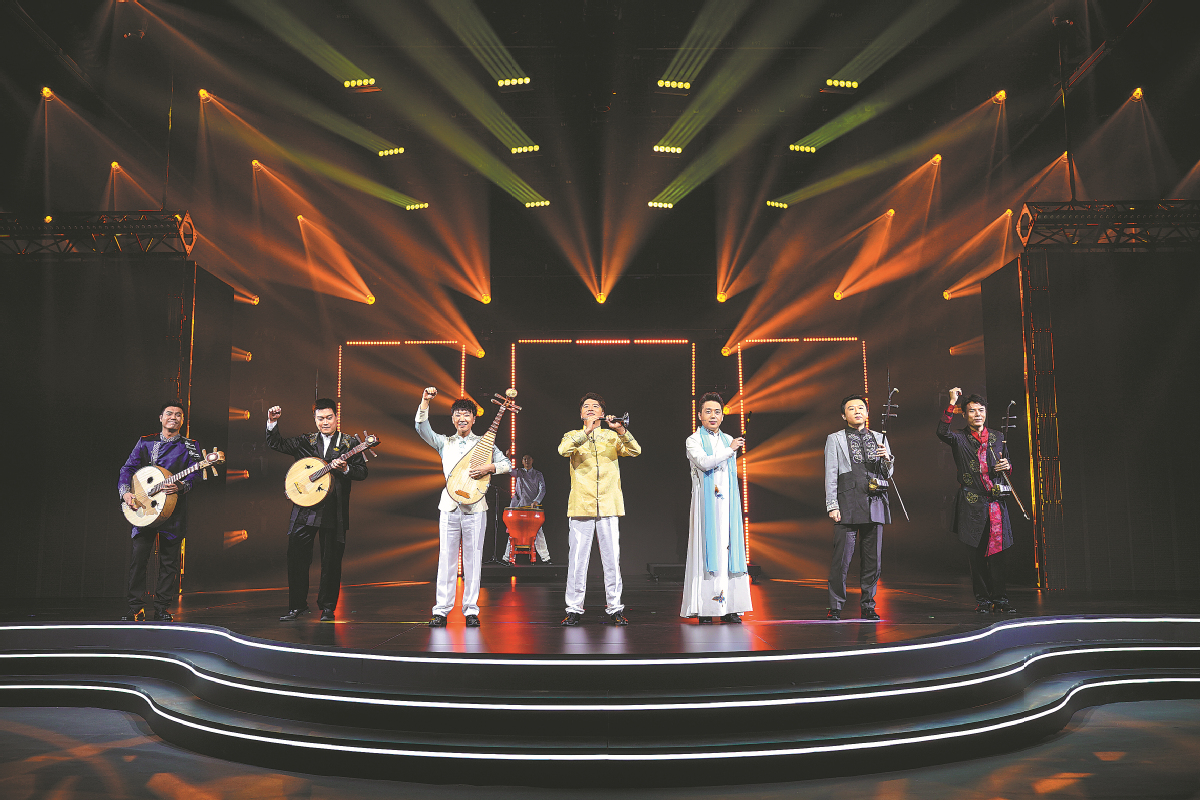 |
| Musicians from the China National Traditional Orchestra perform during the online concert. [China Daily] |
Challenging Time
However, transitioning from traditional concert halls to online streaming platforms is not easy for the musicians.
Shen Xiangyang, who plays the yangqin (a hammered dulcimer) and has performed with the orchestra since 1990, found it extremely challenging when she initially performed livestreaming shows.
The yangqin is played with bamboo beaters that have rubber or leather heads. During the late Ming Dynasty (1368-1644), the instrument arrived in China via the Silk Road, and by the late Qing Dynasty (1644-1911), it had become an essential part of nearly all Chinese folk operas nationwide.
Shen said: "It was a definite 'no' when I was first invited to give livestreaming shows. I had never watched any of these programs, and was used to practicing by myself, rehearsing with other musicians, and performing to live audiences in concert halls."
However, Shen, who is open-minded and curious about such programs, decided to give them a try.
Using only her phone, she gave her first livestreaming show on July 4 in a corner of her home. She prepared works she had often played at concerts, but after the show, the feedback from audiences was not as good as she expected.
Shen sought help from her younger colleagues who had livestreaming experience, before making some quick adjustments and changing the pieces she played during these shows.
She adapted popular songs, and bought lights and microphones for her online performances. She also researched and played music that is the most popular with young people, and spoke to audiences about the versatility of her instrument.
"It was very challenging, because I felt as though I was working as a one-person team. I even lost sleep before my livestreaming shows, as I was so nervous," said Shen, who usually has colleagues from the orchestra help her set up the lights and check the sound.
"I also need to talk during the online shows, which I have never done in any of my concert hall performances," she said.
Initially, only two people watched her livestreaming shows, but the number soon rose to more than 800. The messages she received from audiences were encouraging and touching.
Shen said: "Compared with the erhu or pipa, the yangqin belongs to a minority taste. But my online programs have enabled people who didn't know the instrument to become interested in it, and they want to see me perform at concert halls."
One fan told Shen that she learned to play the yangqin as a child, but gave it up after a few years. The fan decided to renew her interest in the instrument after watching Shen's online shows.
Born in Changsha, capital of Hunan Province, Shen first saw a yangqin as she passed a street corner near her home when she was a primary school student. She was drawn to the instrument's "clean and emotive" sound.
When she found that the yangqin player on the street was a new music teacher at her school, Shen was delighted and decided to learn the instrument for fun, never expecting to play it professionally.
"Now, I am busy with shows at concert halls, and my fans leave me messages asking about my livestreaming plans. I will not stop livestreaming — it's a platform for me to connect with new fans," she said.
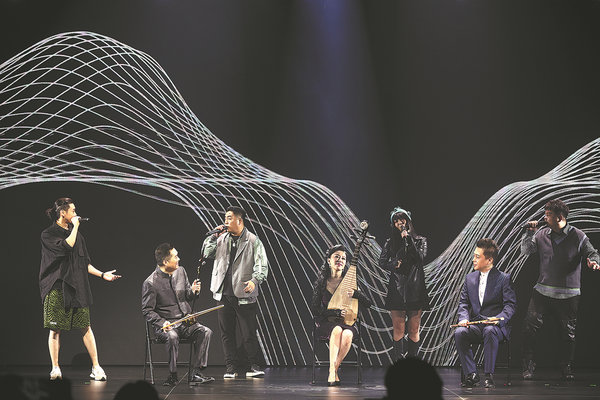 |
| Zhao Cong (center), president and principal pipa player with the China National Traditional Orchestra, performs during the online show. [China Daily] |
Creative Thinking
For the China National Traditional Orchestra's musicians, concert hall audiences are totally different from those that only watch online shows.
Li Chao, the orchestra's erhu player, said: "Audiences who pay for concert tickets are prepared, but online audiences are not. Livestreaming platforms challenge our idea of presenting our music and instruments. This inspires us to be creative and think outside the box."
Unlike Shen, Li, 32, started to watch livestreaming shows after the COVID-19 pandemic emerged in early 2020. He had some ideas about such platforms, but had never given an online show until July.
Since first working with the orchestra in 2012, Li has gained a fan base. When he launched his channel on Douyin — posting his livestreaming shows and announcements — his supporters viewed these performances, making him feel "warm and relaxed".
"It took me a while to adjust to talking and performing, using just my phone," Li said. "Since online audiences are extremely spontaneous, I need to improvise. For example, when they ask me to play a pop song, I have to react fast, or they stop watching the show."
Li added that although traditional Chinese music has witnessed a revival and gained new fans, it still takes time to tell people about this music and the instruments used to play it.
"Many people now play traditional Chinese instruments on livestreaming shows. They wear flamboyant costumes and perform pieces that cater to online audiences," Li said.
"However, this might mislead audiences in terms of what traditional Chinese musical instruments are really about. We want to give audiences authentic traditional Chinese music, and play our instruments to fully showcase the sounds they can make."
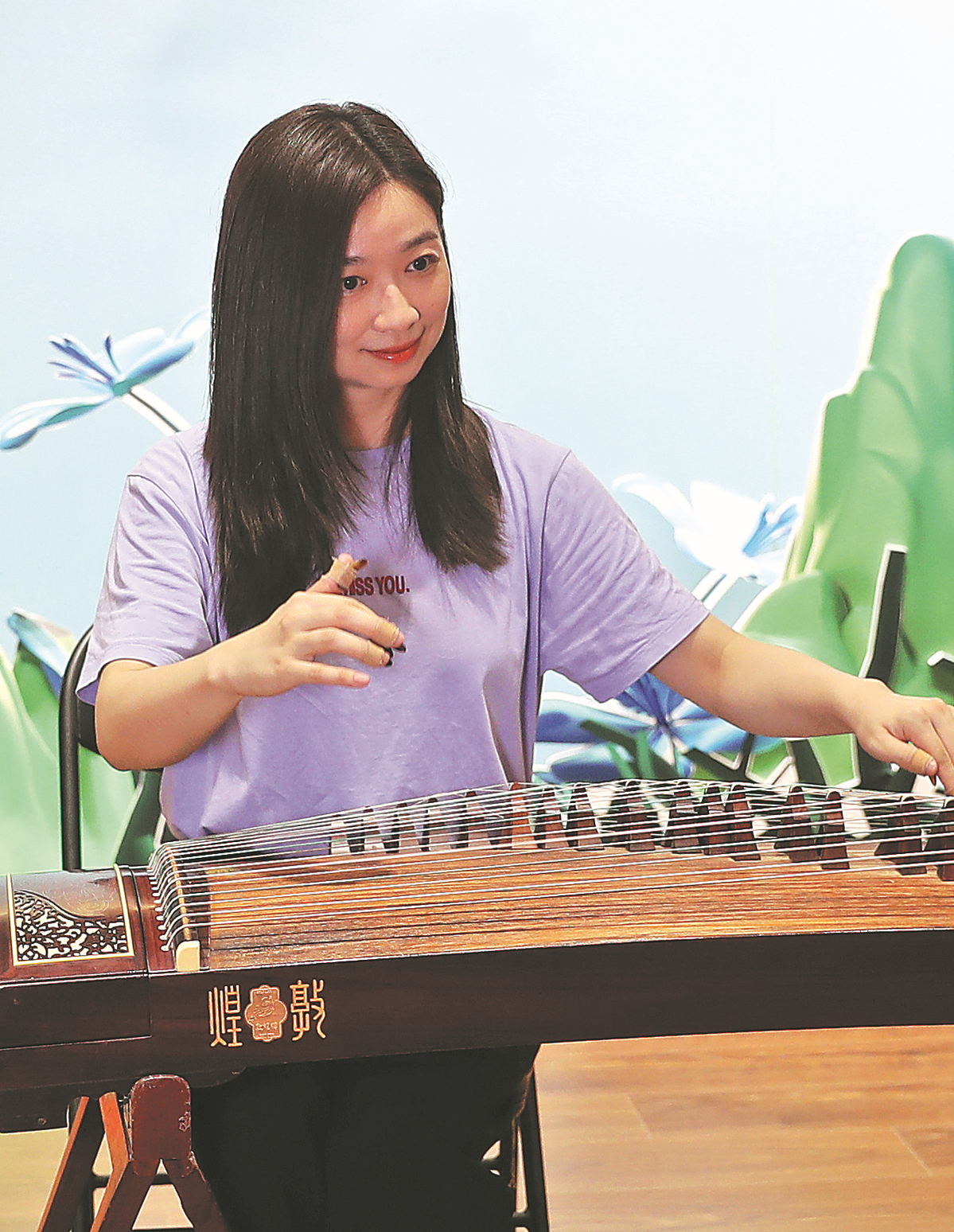 |
| Guzheng player Miao Qing [China Daily/Zhou Hong] |
Guzheng player Miao Qing was among the first musicians from the China National Traditional Orchestra to launch livestreaming programs. In 2017, along with a group of young musicians, Miao performed such shows on social media platforms, playing the erhu, bamboo flute and the ruan (a stringed instrument), with the orchestra and as a soloist.
With each livestreaming show lasting about two hours, the musicians gained more than 200,000 followers within a year.
Miao, 32, said, "All the orchestra's musicians now join livestreaming programs, which is making the scene much more vibrant. As musicians, we want to share our stories with audiences and tell them more about our instruments, which we usually cannot do in concert halls. Online platforms and livestreaming programs offer us the chance to get closer to audiences."
When she plays classic guzheng pieces in concert halls, Miao typically wears beautiful gowns, but for online audiences, she dresses casually.
She usually starts her online programs with a few simple pieces to attract audiences with her dazzling skills. She also interacts with them by answering questions and playing songs they request.
"Like some musicians, I was initially opposed to livestreaming, because I had become used to meeting my audiences in concert halls. However, as tours were postponed and venues closed due to the pandemic, live performances shifted online, which is an inevitable trend," Miao said.
According to Douyin, nearly 2 million livestreaming shows featuring traditional Chinese music were staged on the platform last year.
This year, the number rose to more than 3 million by June, attracting over 6 billion views, as the platform offered new opportunities for musicians seeking to make a living from live performances.
Zhang Fuping, vice-president of Douyin, said, "Livestreaming has become a new format that will have a huge impact on the traditional Chinese music scene," adding that these performances provide musicians with extra income during the pandemic.
In addition to the pipa, the erhu and the suona (a double-reed woodwind instrument), online shows have introduced instruments that are not so well-known among audiences. They include the konghou, (an ancient multistringed, plucked instrument), and the xun, (a globular, vessel flute from China), one of the country's oldest traditional instruments.
Zhang said that with the participation of musicians from the China National Traditional Orchestra, online programs featuring traditional Chinese music will be far more professional and colorful.
He added that Douyin also plans to support through livestreaming 1,000 Chinese musicians who play traditional music.
(Source: China Daily)
Please understand that womenofchina.cn,a non-profit, information-communication website, cannot reach every writer before using articles and images. For copyright issues, please contact us by emailing: website@womenofchina.cn. The articles published and opinions expressed on this website represent the opinions of writers and are not necessarily shared by womenofchina.cn.

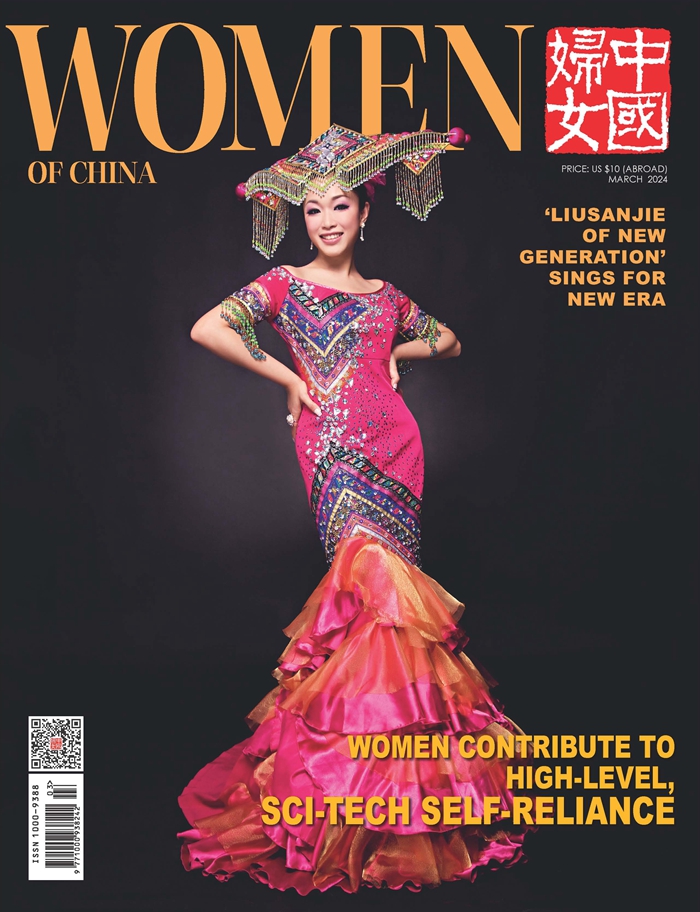
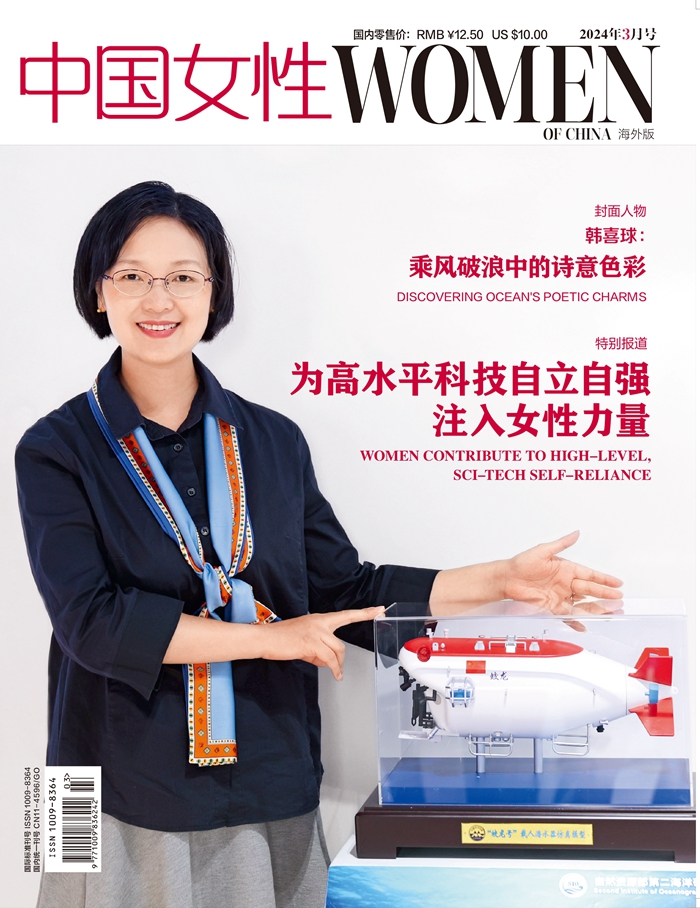





 WeChat
WeChat Weibo
Weibo 京公网安备 11010102004314号
京公网安备 11010102004314号